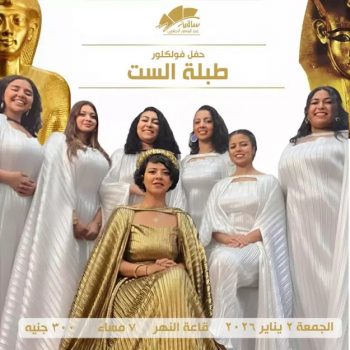In a world where the magic of cinema shapes perceptions, the portrayal of little people in film has often been reduced to mere caricature. Arab filmmakers have historically failed to offer dignified representation, preferring to use little people as comic devices rather than fully developed characters. However, in a refreshing departure from this tradition, director Taghreed Abu El Hassan’s Snow White is the first Egyptian film led by a little person, offering a portrayal of identity, societal expectations, and resilience.
Premiering in the Arab Masterpieces section at the Red Sea International Film Festival, Snow White marks a pivotal moment in rethinking how little people are represented on screen, and here’s why.
History of Representation
The misuse of little people in Egyptian cinema is not just a creative misstep; it’s a human rights issue. From the 1950s onward, filmmakers exploited their vulnerability, offering them minimal wages and relegating them to roles that were nothing more than punchlines.
Recalling the infamous scene from Ibn Hamido, where Ismail Yassin mocks Abdel Dayem Ahmed, a little person. In a movie already packed with comedic legends, Yassin’s unnecessary jab at his height reinforced stereotypes of little people as objects of ridicule. Similarly, El Ragol El Abyad El Motawaset subjected actor Eid El-Sagheer to humiliating treatment, with Ahmed Adam tossing him into a bathroom stall for cheap laughs.
Yet there have been rare exceptions. Sherif Arafa’s El Aqzam Qademon, starring Yehia El Fakharany, is widely regarded as the only Egyptian film that portrayed people with dwarfism with dignity. Arafa’s directorial vision elevated the movie from a mere social commentary to a compassionate exploration of marginalisation, breaking new ground in representing the daily struggles of little people. Until now, Taghreed has given life to Snow White.
A New Lens

For the first time, Arab cinema takes an empathetic stance on the realities faced by little people. Snow White tells the story of Iman, a short-statured woman navigating a world that sees her as different. Despite personal tragedies and societal prejudice, Iman remains determined to live fully, dream big, and experience love.
At the heart of Snow White is Iman’s struggle with romantic aspirations. She longs for love, but societal fears about genetics and prejudice complicate her journey. Her decision to hide her true identity on a dating app mirrors a common coping mechanism among little people. The film challenges the assumption that little people are unfit for romance, presenting a relationship that is as complex and emotional as any other.
Mariam Sherif’s groundbreaking performance won her the prestigious Best Actress award at the Red Sea International Film Festival, making her the first short-statured actor to achieve such recognition. Mariam, a doctor of pharmacy and social media content creator with over 50K followers on social media, brings authenticity and charisma to the role, drawing from her own experiences with societal bias.
Director and writer Tagreed Abu El Hassan approached the subject with meticulous care, determined to break free from narratives of pity. She painted Iman as a strong character, not someone who needed sympathy. Her inspiration came from a short-statured nanny she knew growing up, whose life was marked by the same biases explored in the film.
Social Impact

The creative team behind Snow White took significant risks to shine a light on an underrepresented community. Mohamed Hefzy’s production company backed the project, while established stars like Karim Fahmy and Mohamed Gomaa offered their talents to support the film’s message. In contrast to earlier films that exploited people with dwarfism for profit, Snow White humanises its characters and fosters a dialogue about inclusion.
While Snow White marks progress, the short-statured community remains marginalised. More than 200,000 little people live in Egypt, the highest number worldwide. Under Article 81 of the Egyptian Constitution, they are recognised as individuals with special needs, entitled to healthcare, education, and employment rights. Yet the gap between legal protections and lived experiences is vast. Schools and workplaces often lack the accommodations necessary for true inclusivity, and bullying continues to be a pervasive issue.
Fusing Realism and Fantasy
![]()
The film’s narrative follows a hybrid style, merging the raw, unscripted authenticity of street life with the fantastical elements of folklore. Taghreed stated that her goal was to highlight Egypt’s unique cultural identity while presenting a story that resonates on a human level. To achieve this, she incorporated real people from Cairo’s streets into key scenes, emphasising authenticity and grounding the fantasy elements in the heart of everyday life.
Her choice to title the film Snow White reflects a symbolic connection rather than a direct retelling of the classic tale. Initially considering the title Not Snow White to challenge traditional fairy-tale tropes, she ultimately embraced the familiar name after consulting with little people. She found their pride in the original story inspiring and sought to reframe it from a fresh perspective. What if Snow White herself were short?
Casting Mariam Sherif

Finding the right actress to portray Iman was a formidable challenge. The director auditioned numerous short-statured actresses, including theatre performers, but none fully embodied the character as she had envisioned. When nearly ready to abandon the search, she discovered Mariam Sherif on social media. Mariam, then a pharmacy student on a scholarship in Berlin, had no prior acting experience. Captivated by her potential, the director travelled to Germany to meet her.
A Stellar Supporting Cast

Mohamed Mamdouh’s performance as a character embodying kindness and sincerity was pivotal to the film. Similarly, Mohamed Gomaa brought a duality of charm and complexity to his role, while Karim Fahmy’s casting as Iman’s romantic counterpart followed a survey of short-statured women, who overwhelmingly favoured him as their knight in shining armour. The film also featured notable performances from Safwa, whose plays the character of Umm Khaled.
Inclusivity & Representation

Taghreed Abu El Hassan’s Snow White paved the way for future narratives prioritising authenticity and dignity over stereotypes. It signals a growing demand for stories that reflect the complexity of human experiences, regardless of physical appearance. The film’s success at the Red Sea International Film Festival, selling out screenings and receiving critical acclaim, demonstrates a readiness for change in both the industry and its audience.
As cinema continues to evolve, Snow White stands as a powerful reminder that stories have the potential to inspire empathy and reshape societal norms. It is a call for more filmmakers to embrace inclusive storytelling, where diversity is celebrated rather than marginalised.







